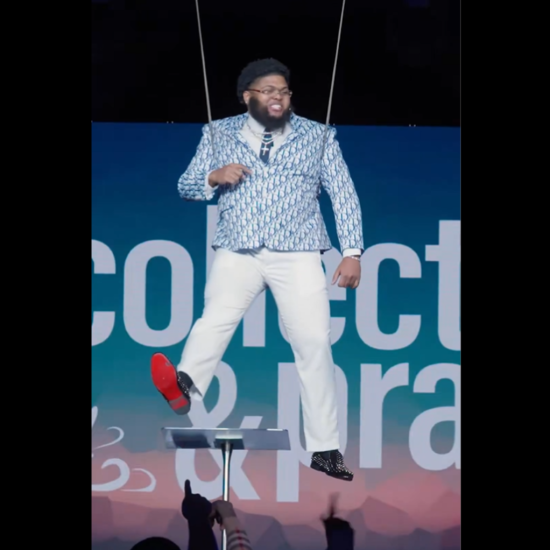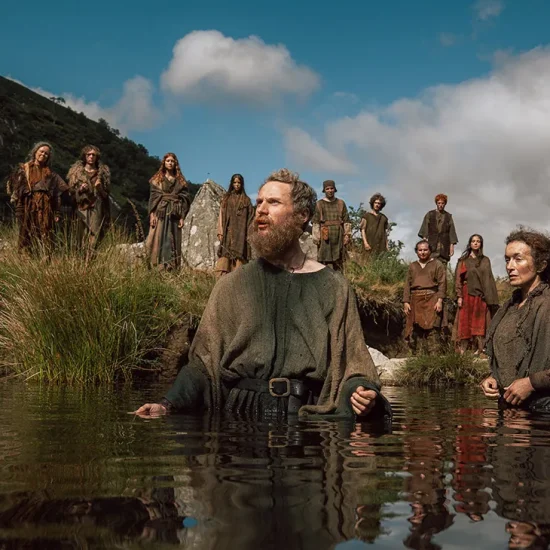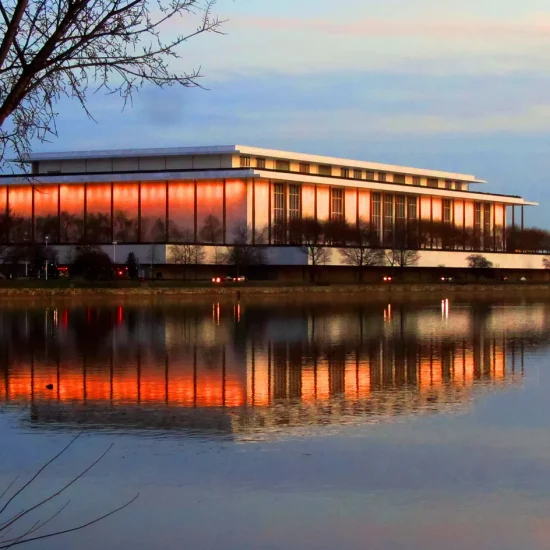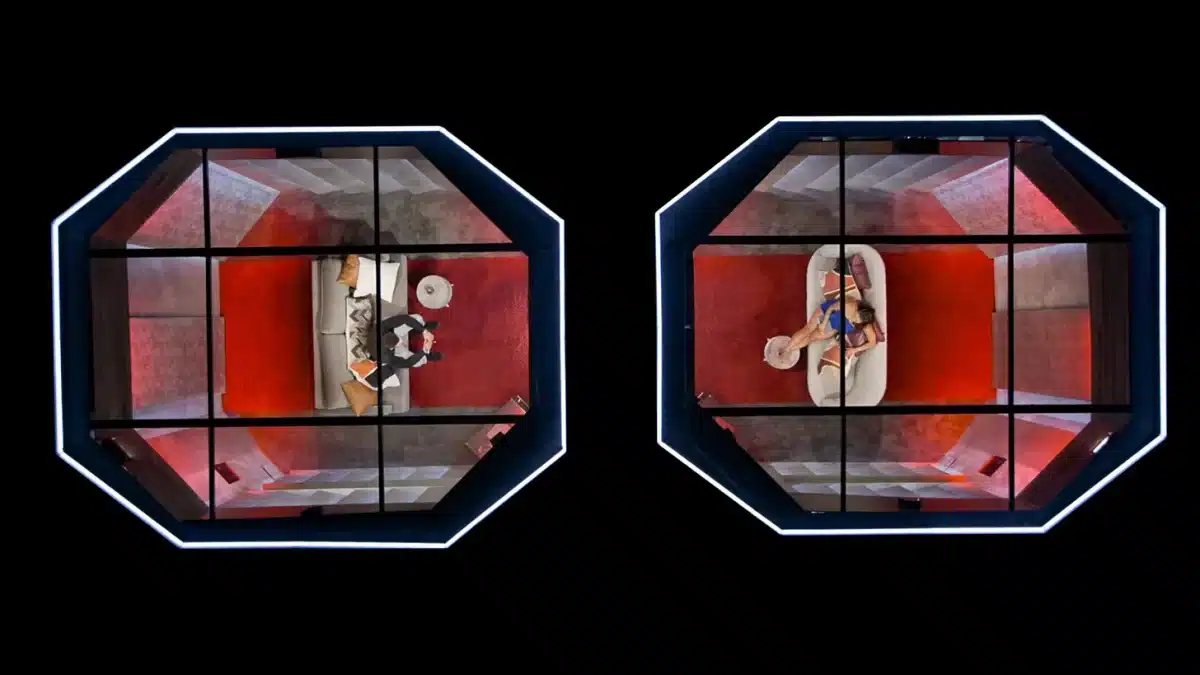
“Find out!” The ads scream.
“Is it really true?”
“Is love really blind?”
It seemed an unlikely premise for the era of the self-facing camera when dating was basically reduced to swiping left or right on a series of filtered, airbrushed photos that may or may not correspond to the identity of the person with whom you’ve been corresponding.

Angela Denker
Love is Blind is the reality television show I love to hate. And I should know because I have pretty much watched them all. Housewives? Check. Teen Mom? Check. Jersey Shore? Laguna Beach? Sister Wives? Dance Moms? I mean honestly, the list goes on and on, starting with Real World and Laguna Beach when I was still a teenager.
The promise of reality TV really sucked me in. As a lover of documentaries and “based on a true story” films, an avid reader and writer of journalism — I just want something real. So the idea of shows that really showed people, without scripts or acting or fake emotions — well, I couldn’t help but watch.
Reality TV started a little bit more this way. On MTV’s Real World, people “stopped being polite and started getting real.” Cast members had real conversations about social issues like gay rights and racism. Producers seemed to at least attempt to cast from across demographic lines of race, class, and religion. There were embarrassing moments, to be sure, but there was also the naive hopefulness and promise of dialogue and social change.
Now, reality TV is just gaslighting me. They’re claiming it’s real, but nothing is real. Producers are scripting scenes. “Friendships” and even relationships are fabricated. Everyone is hawking a product. Meanwhile, the carnage of reality stars “real” lives is actual lived reality, from divorces and even deaths to estranged family relationships, court cases, jail time, hospitalizations, and just general chaos.
But in the opening scenes and on the frequent cast trips, everything looks shiny and new. Sometimes I can’t help but watch and think: should I be taking more trips? Do I even have friends? What’s wrong with me?
It’s clearly ridiculous but also manipulative. So why do I keep watching? Maybe it’s masochistic, but I do think reality TV is a sort of mirror of the culture we live in today. It offers up a mirror, and if you look closely, it shows us much more about ourselves and our society at large than it does about the individual lives of the people we’re watching.
Don’t miss the next issue of Angela Denker’s newsletter “I’m Listening.” Sign up now!
Into this melange of hair extensions and gratuitous (pretend?) wealth comes one of reality’s newest series, Netflix’s Love is Blind, hosted by (former reality star Nick) and Vanessa Lachey. The series makes one of those gaslight-y reality TV claims and then goes on to prove exactly the opposite. Let’s break it down.
The premise of the show is that they’re going to prove if Love is really blind. Setting aside the inherently ableist pose of even asking that question — it’s a stupid premise. Because love is embodied. We feel love in all of our senses. You don’t fall in love only with your mind alone because you are not a floating brain. There is no body/soul split: we are ourselves, ingrown toenails, belly button fuzz, bad breath, gas, and all. The Ancients actually believed emotions were housed in the gut. You can taste defeat. The smell of our loved ones lingers even long after they’ve died.
I remember my dad kept a pair of his dad/my grandpa’s black leather gloves in his car after his death. I’d put them up to my nose for years, and the memory of my Grandpa came rushing up: the crinkles at the sides of his eyes, and the particular combination of cologne and the faintest odor of cigarettes.
Love is a series of embodied moments: the brush of a hand, the tightness of a hug. Life is lived in bodies. We have to be our whole, flawed, failed, embodied selves — or be nothing at all. This idea that we can escape and transcend our bodies; well I think it’s a version of the human desire to want to be gods. To deny our mortality and our shared culpability and responsibility to one another.
Enter Love is Blind.
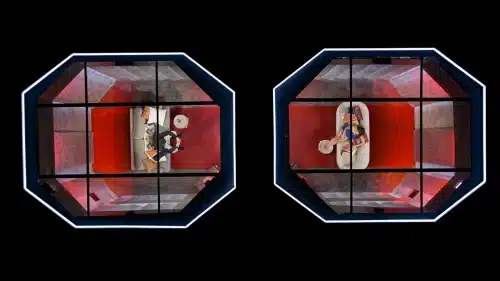
Love is Blind pods
The show takes a group of (suspiciously Instagram-model-y) strangers (note that all are heterosexual in three seasons of the show thus far) and has them live apart according to their gender in some kind of building specially outfitted for the show. Over the period of about two weeks, the cast members spend hours in “pods” engaging in conversation with members of the opposite sex, with the goal of building relationships and ultimately engagements before ever seeing one another.
The show’s marketing suggests it wants to move away from an era overly focused on appearance to prove that relationships and marriages should be grounded in things other than appearance. But if they really wanted to do that, then why did they cast uniformly conventionally attractive people with very little body diversity?
Furthermore, it’s clear that (after watching 2.5 seasons of the show) these so-called relationships grounded in conversation and the amorphous “personality” are anything but some kind of “experiment proving that love is blind.”
I am all about the potential for conversation to build relationships. But then I listened to the conversations being had by the Love is Blind cast. They just couldn’t seem to get below the surface. In a particularly poignant moment from Season 3, one cast member tells a heartfelt story about his past, while the other cast member in the pod across from him does jumping jacks while half-listening. This isn’t the fault of the individuals in the pods. But it conveys a larger truth.
Love is Blind is selling a lie when it claims it’s trying to build “better” or somehow “purer” relationships because the people don’t see one another before they get engaged. Now, setting aside the idea that most of these folks probably are motivated to get engaged on the show for extra screen time, these engagements are built on an entirely narcissistic facade. Rather than creating a relationship void of the very real reality of physical chemistry, the “pod” relationships instead seem to perpetuate a sense that we can create another human being exactly as we’d desire them to be our life partner.
Help sustain Angela Denker’s ministry by subscribing to “I’m Listening.”
The pod conversations and relationships, it seems to me, basically consist of two people talking about themselves and what they’d want in a relationship. Then, they fawn over one another with over-the-top compliments. BUT THEY’RE NOT ACTUALLY COMPLIMENTING EACH OTHER. Instead, they’re saying these over-the-top words to one another, but they’re saying them about the “ideal” partner they’ve foisted onto the disembodied voice on the other side of the pod wall. The relationships feel so amazing to the cast members because they’re not real human relationships, which require mutuality and responsibility to another person. Instead, they’re fantasies: with each partner projecting an image onto the other person. The pods enable this projection because they’ve made the partners disembodied and therefore not really real.
This is why, for me, the show only really gets interesting once they’re out of the pods. That’s when the “reality” begins. Inevitably, everyone is disappointed because the person they created in their minds on the other side of the pods is actually another embodied human being, who can never live up to the idealized vision created in their mind.
This is where the narcissism really comes in. Because only in a deeply narcissistic culture like our own could a TV show purport to create a “deeper, more authentic relationship” when in actuality it’s just providing a forum in which individuals can imagine they’re talking to their ideal partner, and both people fill each other with empty and flowery compliments because both believe they’re talking to a person they’ve created in their head. A person who exists only to fulfill their fantasy. When the narcissistic fantasy becomes a reality, on both sides, of course the relationships can’t last.
It’s like MTV’s Catfish, except both people are simultaneously being catfished and catfishing each other at the same time.
One comment I’ve heard on multiple occasions, once the relationships exit the pods on Love is Blind, is cast members saying: “Well, I don’t want anything about my lifestyle to change.”
To that I would respond:
1. A relationship necessitates a change in lifestyle, especially a marriage. You’re sharing your life with another person.
2. I hope you don’t plan on having children because I lost any semblance of a “lifestyle” 10 years ago.
Another phenomenon I’ve seen is people, especially people for whom the revelation of their Instagram model partner is just not quite the type of Instagram model they had in mind when envisioning and crafting their ideal partner in their mind, longing to “go back to the pods.” Things were so much simpler then, they think wistfully.
But that’s not as the show contends, that the pods were a “purer” form of love. Instead, they were a narcissistic fantasy, wherein each partner could create a partner in their mind who — again — existed solely to fulfill this fantasy and had no needs of their own. The desire to “go back to the pods” reveals that the show’s beginning actually sets up all of its relationships to fail. The pod conversations are grounded in narcissism and false flattery. It’s not like they’re finding a solution to Putin’s aggression or reforesting the Amazon in there, let’s be honest.
Have I convinced you yet? That this latest reality phenomenon is yet more evidence of a culture that is self-obsessed and unwilling to consider the sacrifice and humility required of a democratic, peaceful society?
We are, of course, much more than reality TV. So revel in your own embodied relationships and the ways they remind us that only in getting outside of ourselves and loving another — the fullness of another, not just our version of how they fit with us – do we fully experience the breadth and length and height and depth of love ourselves.
After all, it was only when God chose to limit Godself, to take on human form and live life as a lowly human being in Jesus of Nazareth, did God’s love reach its full potential and vanquish death forever. That kind of love died on a Cross; it never lived behind a pod.
Angela Denker is a Lutheran pastor and veteran journalist. She has written for many publications, including Sports Illustrated, The Washington Post, and FORTUNE magazine. Denker has appeared on CNN, BBC and SkyNews to share her research on politics and Christian Nationalism in the U.S. Her book, Red State Christians: Understanding the Voters who elected Donald Trump, was the 2019 Silver Foreword Indies award-winner for political and social sciences. The revised edition of Red State Christians, subtitled: A Journey into White Christian Nationalism and the Wreckage it leaves behind, came out Aug. 16 and is currently available everywhere books are sold.


